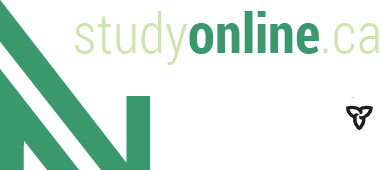Death, Dying, Grief and Bereavement
Description
This course will provide the student with an introduction to the issues that seniors and their care-allies experience in death, dying, grief and bereavement from a pluralist perspective. While the focus of the course is on geriatric end-of-life (EOL) issues, the content will cover a lifespan perspective because death occurs at any point in a lifespan and grief is experienced in a multigenerational context. Particular attention will be paid to: developing the student?s insight into how death can impact personal experiences and perspectives as it relates to their clients in the community, current relevant theories and practices on death and the dying process in contemporary Canadian society, application of standardized clinical assessments will be learned and practiced when evaluating for and creating holistic end-of-life (EOL) care plans for older adults, working with volunteers and family caregivers and care-allies to provide support during the dying process, understanding the loss and grieving process and working with families to adjust to loss and bereavement from a pluralist, inclusive, holistic, lifespan perspective; identifying effective palliative programming in community and institutional care settings; promoting advocacy and funding support for older adults experiencing the dying process and their family caregivers. Identifying ethical dilemmas when applying the new legislation of the Medical Assistance in Dying Act (MAID) and the OCSWSSW Code of Ethics regarding this new law and its application will be discussed. Identifying the needs of older adults and their caregivers? support systems will be integrated into the learning process. Students will be discussing the regulations and laws surrounding ethical issues encountered in the palliative and hospice field and reflecting on their own cultural, religious, and spiritual beliefs and values regarding death and the dying process. As well, students will be expected to reflect on their personal loss history and how this impacts their professional practice in the field when working with seniors and caregivers. We will have a special section on losing loved ones during COVID19 as the circumstances surround this type of dying and grieving in isolation is a new global phenomenon yet, uniquely traumatic for each individual who is an older adult dying in isolation and their loved ones who cannot be with them in their final moments and grieve in isolation.
This course incorporates much of the PalCare Core 1 palliative practice principles for certification based on the National Palliative Care Network standards. There will be an additional one-day training session to complete the Core 1 Principles in Palliative Care certification process. The cost will be minimal for this additional module.
Note: Check with the institution regarding start/end dates, prices, and delivery method. These may vary according to program, section, and/or semester.
This course incorporates much of the PalCare Core 1 palliative practice principles for certification based on the National Palliative Care Network standards. There will be an additional one-day training session to complete the Core 1 Principles in Palliative Care certification process. The cost will be minimal for this additional module.
Note: Check with the institution regarding start/end dates, prices, and delivery method. These may vary according to program, section, and/or semester.
Related Programs
Overview

- Institution: Seneca Polytechnic
- Level: College
- Language: English
- Course Code: GWL407
- Delivery Method: Blended/Hybrid Learning
Disclaimer:
Check with the institution regarding start/end dates, prices, and delivery method. These may vary according to program, section, and/or semester.
Check with the institution regarding start/end dates, prices, and delivery method. These may vary according to program, section, and/or semester.
